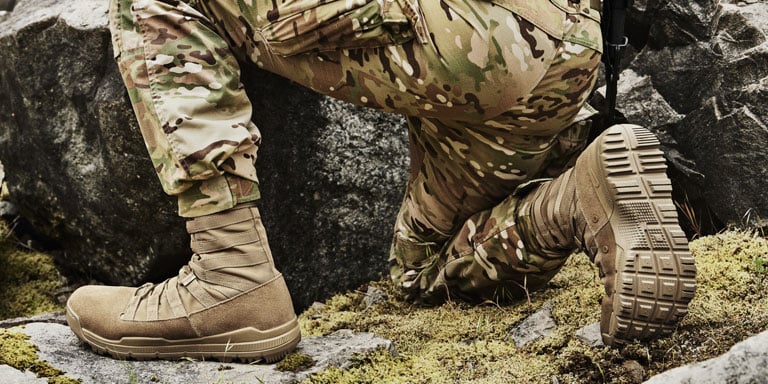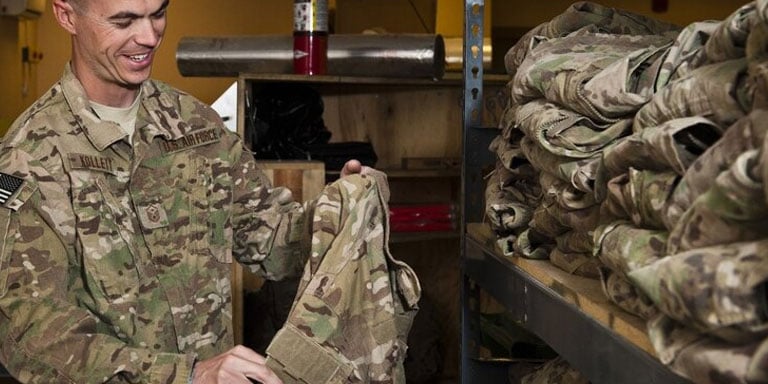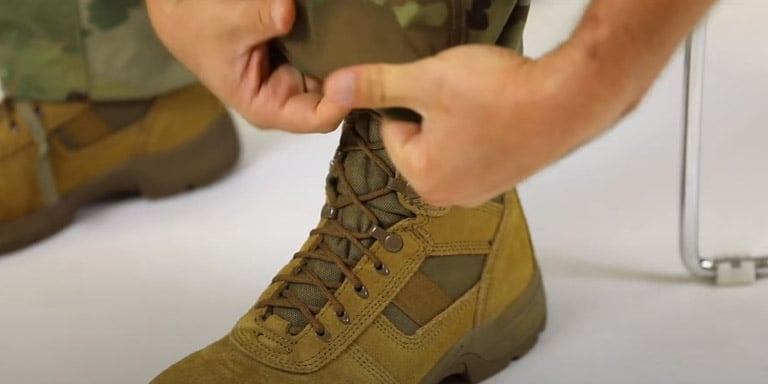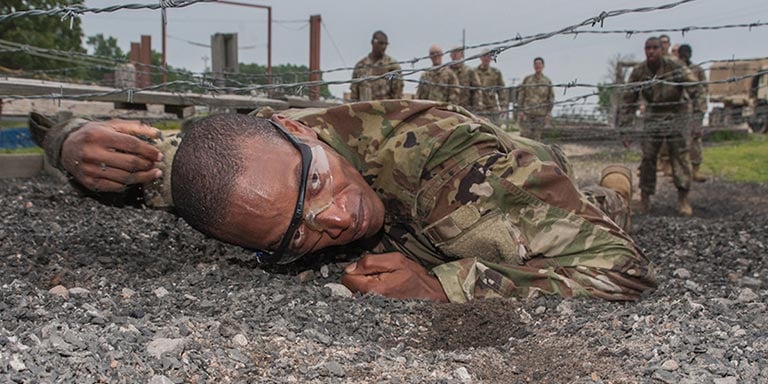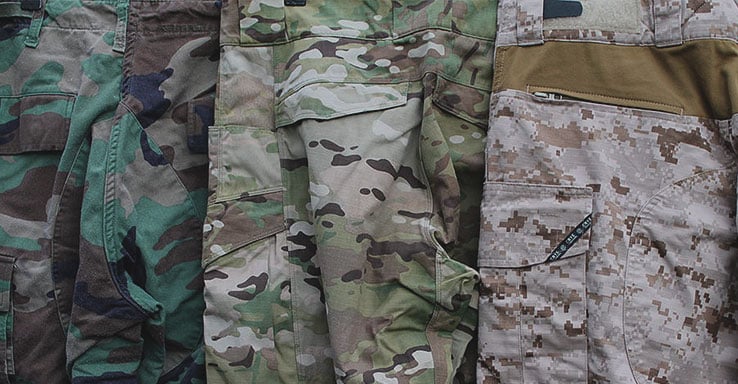
Among the many risks associated with military service, getting captured by enemy forces is one of the most unpleasant to contemplate. In order to escape captivity and return home safely, you’ll need to be able to think clearly and act with a precise blend of boldness and caution.
In this introductory guide, we’ll cover some basic strategies for enduring and eventually escaping captivity, relevant codes of military conduct and how to resist interrogation. As is the case with any sensitive and complex military topic, this guide is far from comprehensive. It is intended only to provide a basic foundation of general knowledge.
Laws of War and Military Codes of Conduct
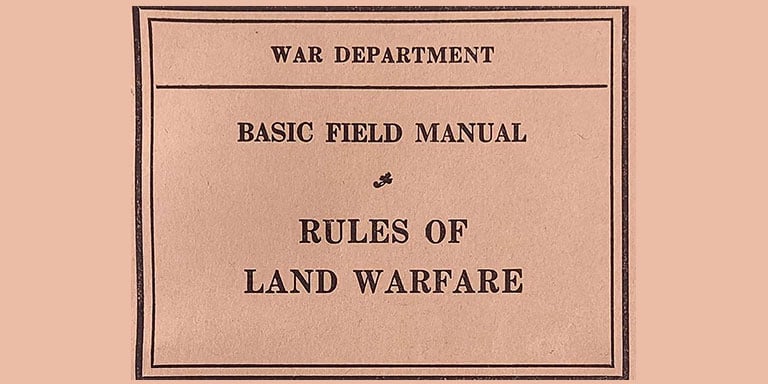
As a military combatant in a foreign country, there are many laws and codes of conduct you must abide. The two most important are the Geneva Convention and the U.S. Military Code of Conduct; the former primarily governs captors’ conduct, whereas the latter mostly deals with how the U.S. military expects you to behave as a captive.
First and foremost, it’s important to recognize that there is never any guarantee that your captors will abide by these laws and codes. If they don’t, the most important thing that changes will be your timetable; you must try your best to escape as quickly as possible, and to help your allies escape if you can.
The U.S. Military Code of Conduct can be a helpful tool for surviving captivity with dignity and honor. Here it is in its entirety:
I am an American, fighting in the forces which guard my country and our way of life. I am prepared to give my life in their defense.
I will never surrender of my own free will. If in command, I will never surrender the members of my command while they still have the means to resist.
If I am captured I will continue to resist by all means available. I will make every effort to escape and aid others to escape. I will accept neither parole nor special favors from the enemy.
If I become a prisoner of war, I will keep faith with my fellow prisoners. I will give no information or take part in any action which might be harmful to my comrades. If I am senior, I will take command. If not, I will obey the lawful orders of those appointed over me and will back them up in every way.
When questioned, should I become a prisoner of war, I am required to give name, rank, service number and date of birth. I will evade answering further questions to the utmost of my ability. I will make no oral or written statements disloyal to my country and its allies or harmful to their cause.
I will never forget that I am an American, fighting for freedom, responsible for my actions, and dedicated to the principles which made my country free. I will trust in my God and in the United States of America.
Understand, though, that this code is a brief, general and incomplete set of guidelines, not a comprehensive guide to action. By virtue of its brevity, it cannot account for the full context of any conceivable situation. For instance, one provision states that “I will accept neither parole nor special favors from the enemy.” However, it can be both morally justifiable and tactically advantageous to accept special favors if, for example, you do so as part of a specific plan to escape, to undermine the enemy’s war efforts or to otherwise protect yourself or your fellow prisoners from a specific danger.
Evading and Escaping Capture
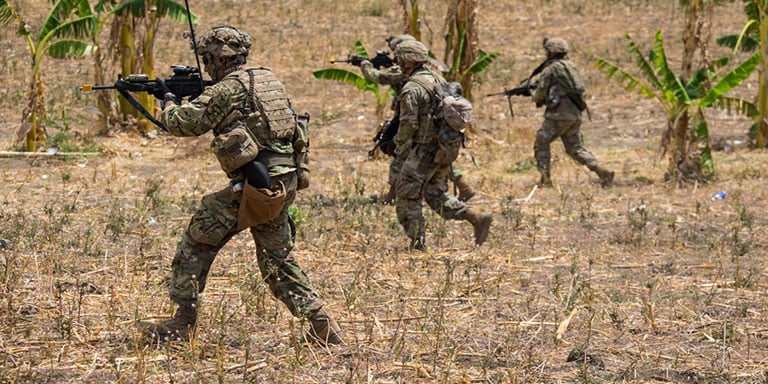
In most cases, enemy combatants will attempt to capture you only when they take you completely by surprise or when they’ve decisively defeated your squad or unit. If enemy fighters have reason to believe that you or your allies would be particularly valuable as prisoners, they may attempt to capture you even if you and your allies are still in fighting shape.
In any case, this initial capture attempt is usually the best escape opportunity you’re going to get. In the field, amid the chaos of battle, the enemy’s control of the situation is much more tenuous than in their own camp or stronghold. Surrender only when you have no other, more tactically preferable options. Such circumstances are very rare, so evade capture while you still can. When you surrender, you give up nearly all of your ability to resist and are forced to rely largely on two things that are far from guaranteed: the enemy’s goodwill and the hope that you will have a reasonable chance to escape at a later time.
To avoid capture, create as much confusion and chaos as possible while the enemy combatants are still trying to decide whether or how to detain you. Resist quickly and decisively, but not without careful consideration of the tactical pros and cons, to the extent that you have time to contemplate them. If the enemy has complete control over you and seems likely to respond to resistance with lethal force, then wait for a better opportunity. If you have a realistic chance to save yourself or your allies from initial capture, though, take it without hesitation.
Try to Escape During Initial Transport
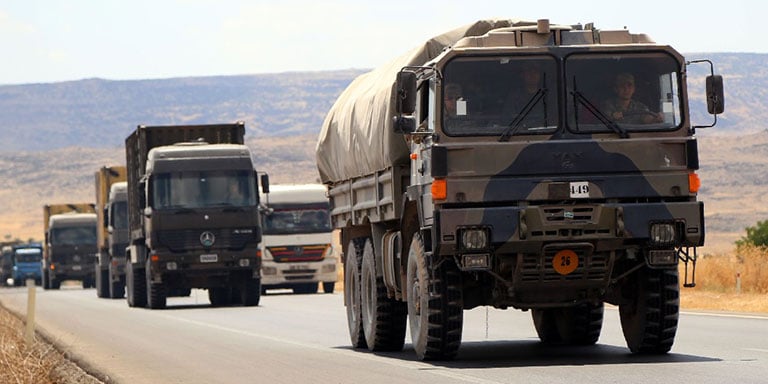
Sometimes, avoiding capture is simply unfeasible, despite your best efforts. If you are captured, immediately begin planning your escape. Pay close attention to your surroundings and keep track of when and where you’re moved. Use all of your senses. Listen for audio cues in the environment, sniff out distinctive smells and count in your head while traveling in a vehicle to get a rough idea of how far you’ve been taken from the point of capture. Take note of any bridges, railroad tracks, or other distinctive terrain features that the vehicle crosses, as well as the approximate time or distance between them.
Although the most ideal window of escape has passed, escape may be easier during transport than it will be once you’ve been returned to a secure location that is fully under the enemy’s control. If you can’t escape right away, be patient and watch for future opportunities. Be willing to forego a mediocre opportunity if it seems likely that a better one will arise later.
Resisting Interrogation

If you are questioned by the enemy, give only your name, rank, date of birth, and service registration number or social security number. Resist all other questioning to the best of your ability. Giving the enemy false information as part of a calculated plan to resist or escape is acceptable if there are no obviously preferable alternatives.
Proactively and preemptively think of believable excuses as to why you can’t provide the information the enemy wants. If you’re of low rank, say you don’t have access to sensitive information. If you’re of high rank, say that your subordinates handle operational details and you don’t know them. Don’t identify specific people, especially if they too have been captured.
Escaping from a Secure Facility

If you are brought to an enemy camp, base or detention facility, think carefully about when to play along and when to openly resist your captors. Over time, lull the enemy into believing that you are docile and complacent, but don’t overact — they will likely become suspicious if you seem to accept your predicament too readily.
If outright resistance is dangerous or unfeasible, look for ways to inconvenience the enemy. If they put you to work, then work slowly and sloppily, but not so poorly as to endanger yourself or your allies. Keep your spirits up by remembering that, unless the conditions of your captivity are exceedingly dangerous, time is on your side. The enemy must maintain constant vigilance, but you need only one solid chance to escape. Bide your time, think rationally, lay specific escape plans when you can and seize the first good opportunity that arises.
Being held captive by hostile combatants is deeply uncomfortable to contemplate, but if you ever find yourself in such a situation, you'll be glad you gave it some thought ahead of time. If you’re likely to deploy in a combat zone, request extra training from a 35M interrogation specialist (formerly 97E) or your branch’s equivalent. You can request training by submitting Army form IMPC-HAW-PLS-1 "Military Training Request," or its equivalent form, if you serve in a different branch.
Did you find this article helpful?



